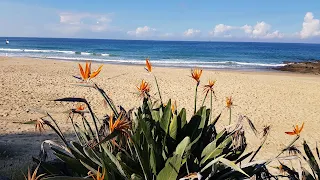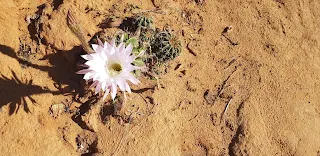Kindly Yours - A collection of writings, thoughts and images. This blog does contain third party weblinks. No AI content is used.
Monday, 28 June 2021
Sunday, 20 June 2021
Sunday, 13 June 2021
The G7 today
The G7 looks like an alumni of the victors from the two devastating world wars of the 20th century.
Definitely not, as historical enemy states from that era, Japan and Germany, are sitting on the table as part of the seven core members.
North America and Europe contribute most of this so called select group of seven nations. Past allies like Russia and China from those world wars are now viewed by this mostly Western Alliance as hostile.
Asia-Pacific is represented only by Japan.
Is the G7 a group of the current and growing powerhouse economies? Banish that idea - Brazil, India, Indonesia and China are not in this group of seven. Smaller economies like Australia and South Africa are asked to attend on the side lines.
Someone I know pointed out to me that the G7 nations, except for Canada, all have USA military bases on their soil.
Some quarters view the G7 as a core military alliance in a future world war scenario for the 21st century. Instead of seizing an opportunity to further cooperate for peaceful global development, this interpretation emphasises the significance and powerful influence of weapons producers and traders in our politically unstable world.
Does the G7 represent one side of a potential clash of civilisations? Or is it a manifestation of one side of an evolving trade war?
Some Asians I know view the G7 as an alliance of Western powers, trying to ensure that its long held dominance in geopolitics is not whittled away. The problem with this opinion is why Japan is part of and Russia is not part of the G7.
Yet, Africans, Asians apart from Japan, Latin Americans, Indigenous nations and Middle Easterners are notably not members of the G7. So it is definitely an exclusive club.
More likely the G7 is an alumni of past and still current dominant powers, which increasingly have to deal with the realities, on various growing fronts, of a quick changing contemporary world.
#yongkevthoughts
Tuesday, 8 June 2021
Australia - Give It A Fair Go
How many club memberships, living in Australia, have you chalked up over the years? I am not referring to exclusive country or city clubs where you network with the rich, politically connected and inner sanctum of useful contacts. The prevalence of these other clubs I am talking about here, across the many suburbs of this Great Land, often depend on turnover, a huge but cheap membership base, gaming machines, a bistro of varying quality and some measure of community activities.
Increasingly significant is the local barista. Over many years, so many blends of coffee beans have come out of Australia, establishing Aussie brands in this space with a strong reputation beyond its shores. The routine of having brunch or breakky has contributed to the new styled cafes mushrooming with new fangled food recipes accompanying the beverage. Tea has nevertheless not lost its embedded loyalty, together with other penchants for avocado smash, sourdough toasts, Granola mixes and sauteed mushrooms.
Beer craft and wine appreciation communions now express themselves in watering holes not just in the cities, but also in populated regional hubs. The accompanying pizzas, burgers and randomly performing local musician adds extra zest and layers of attraction to visit such venues. The traditional Aussie pub though still stands tall, but can face challenges without the tribes gathering pre and post footy games, the family gathering for a wholesome Aussie roast and its truly vital role in the fabric of its local community.
And then in capital cities, Asian run bistros seem to be a contemporary cornerstone of those RSLs and comparable clubs. Vietnamese and Chinese operators provide alternative menus to pasta, Wellingtons, schnitzels and salads.
Migrant food has also been hipsterised and hybridised with fusion offerings, contemporary presentations and more use of alternative ingredients. Outlets offering such experiences are evolving a unique trend in the development of what foreigners increasingly acknowledge as uniquely Australian. Drop by a new styled bakery run by Koreans, French and Japanese here - while we still have access to traditional stuff from the Italians, Lebanese and our grandmother's Aussie cookbooks.
The roadhouse is so important for many remote communities, truckers and tourists out in the Woop-Woop. It is a petrol station, sandwich bar, souvenir shop, grocery outlet, cafe, toilet stop, rest area and contact point for many both enduring and enjoying the vast, seemingly empty land that is Australia.
Our borders with other countries has been closed for so many months, but we still enjoy the Long Drive within our own state or when varying governments permit, across to other states on this continental island. Straight roads for many kilometres delightfully surprise our visitors - and also coastal scenic drives, sojourns across farmlands, adventures across deserts or Alpine country. What most of us agree upon is to avoid traffic jammed scenarios in our capital cities during the so called rush hour - or the increasing high tolls on roads labelled as Connex.
The water source, whether it is a constructed indoor or outdoor pool in suburban hubs, lake or a rock pool along one of our countless beaches, beckons many and perpetuates the influence of water in the life of many Aussies.
Most Aussies still reside within 100 km of its magnificient coasts. Swimming and surfing are anchor sports, whether competitive, recreational or
for exercise, in the fabric of this Great Southern Land. Not many activities are as physically wholesome, mentally refreshing and rewarding as interacting with water.
Expressing one's self, taking part in public protests and telling a yarn also run through the veins of Aussie history. At times, the giving of opinions, as overly encouraged by social media channels, politics and so called democratic freedoms, can lead to no action and just talk. The contemporary disease of mixing of facts with diverse views, manipulation of selective truth and aggressive marketing agendas by strong vested interests, has however thrown more than a spanner in this unrelenting confusing cauldron.
The unique spirit of being a larrakin still is very much alive in the Australian character. However, this can be challenged by some aspects of a rising trend of political correctness which can at times lose this essential quality of humour and humaneness in negotiations, dealings and various transactions of society.
Australia has always thought itself as the Land of the Fair Go. Building upon layers of viable cultures, philosophies and traditions, we and our society have special routines, daily regimes and refreshing attitudes, when we zoom in on the beneficial and positive ones. In the course of a day, each of us can find opportunity to have that healthy breakky, soak in a rewarding outdoor activity, press on with that work challenge, catch up with mates and try that unusual dish down the road.
#yongkevthoughts
Thursday, 3 June 2021
Malaysia - Serious Covid 19 Wave
I deeply pray that the escalating spread of Covid 19 in Malaysia is better controlled, overcome and resolved. However, how can members of the public better protect and manage themselves, should the epidemic escalate?
The public and private hospital system can go into operational chaos and rupture, buckling by the sheer numbers of patients. Are managers of such facilities already preparing, securing vital equipment and supplies, while also revamping their work processes, retraining their staff and enhancing their business continuity plans?
Foreign governments can impose tighter restrictions on movement of
individuals who have been in Malaysia. For Malaysian nationals overseas, they may have to delay their return to their home country. The higher education sector around the world and in Malaysia itself has vested interests already shaken up in 2020 - and a serious rampage of Covid 19 within the nation itself can make things worse.
If the public health scenario deteriorates in Malaysia, neighbouring Singapore faces a double edged sword of consequences. The island republic has served admirably well as a refuge from turmoil. What is different now are the higher risks of infection for a well developed island that is only separated by two causeways from the Malaysian peninsular. This has manifestations in the procurement of supplies, trade, political relationships, shipping and transport management. At the same time, Singapore's attraction as a beacon for investment, financial stability, reliable governance and an excellent medical services hub can be enhanced.
Will some nations rush to help the Malaysian people and government in such a time of need? The UK, EU, China, Australia, New Zealand,
Japan and Singapore are most likely to help. What about the able Islamic fellowship nations and members of ASEAN?
The Federation of Malaysia also poses unique angles of management, as it is separated by the South China Sea into two geographical areas. Sarawak, on the island of Borneo, has recently experienced a spike of new Covid 19 cases each day - and so have Selangor, Johor and Kelantan sited on the Peninsular. Will the varying political treatment of each state by the central government play into the effectiveness of helping out the common person on the street, caught up in the ugliness and confusion of an epidemic?
Are there sufficient supplies already available of testing kits, vaccinations and numerous items required in anciallary medical services? There is also a risk in heightening racial, religious, cultural and social sensitivities during a period of a health crisis. The social demographics are another spanner in the works, as already experienced before Covid 19 arrived.
Earlier waves of Covid 19 affected specific groups of Malaysians, but the recent outbreaks have become more pervasive and embracing. Will there be sufficient leadership and innovative approaches to curtail the relentless spread of this Coronavirus as soon as possible?
A strong infection wave will also further weaken the economic and financial structure of a country that depends on investment growth, exports, tourism, agriculture and petroleum resources. Malaysia plays a smaller role than India in providing call centres and corporate accounting support, but can have its reliability damaged in such services with a Covid epidemic.
The durian plantations have already suffered with curbs on international border entry, collapse of tourism and restrictions on air travel in the past 15 months. What is next?
7 May 2021
#yongkevthoughts
Exceptions for the Privileged Few
Our international borders have been declared officially closed since March 2020.
However, more than 14000 Australians have reportedly left the country, more than once, since Covid 19 arrived. These include military, diplomats, government officials, people seeking medical assistance and other categories. They have all been given exemptions by the Federal Government. I am more interested in the detail of the other categories.
This is for a national population of around 25 million. So around 0.00056 per cent have been granted permissions to leave more than once. Often, it is not the statistical percentage that counts, but the reasons why and how. Voters lose faith in government policies when exceptions are allowed without a reasonable explanation.
The majority of Australians have been compliant, restricting their personal movements, mostly within their states. Even the media around the world has remarked how compliant most Aussies have been since 2020, breaking our previous track record as often going walkabout, driving long distances and as frequent backpackers overseas per capita of population.
Domestically in Australia, many individuals have just put up with a stiff upper lip, bit their tongue and kicked their heels in, while not being able to physically see their loved ones, mostly interstate, even for significant life events, delaying weddings, medical procedures and more.
Go figure.
#yongkevthoughts
No Brainers
Commercial hotels are not built to accomodate as medical evacuation centres. They are designed for holding healthy guests.
A powerful national ally asks an aggressive leader to de-escalate tensions, but the latter doubles down on bombing.
The NSW Government in Sydney so far ignores the rising mouse plague across NSW farms and countryside - when will the impact arrive at supermarket prices and supply to suburban areas?
The plague of corruption of our public monies and manipulation of politics continues unabated under the cover of Covid 19.
Nature gives us produce from plants we can grow ourselves. The sun shares her bounty to give to our bodies and for our household energy utilities. Yet society makes us go to pay a middle person for our table veg, a manufacturer for vitamin supplements and a company that burns coal.
Most of us these days have a mobile phone, a social media address, a personal email, an ID document, a favourite password, a swipe card, etc.
Soon there may be more required as governments may utilise Covid 19 to make us have more.
Is there a website where I can follow up on electoral promises, the varying pronouncements of medical bureaucrats, the predictions of soothsayers and the forecasts of economists?
Each of us can read between the lines when a snake oil sales person tries too hard to press on the message to us.
#yongkevthoughts
Covid 19, June 2021
Are there lessons for Australia?
If any government does not effectively manage the breach point of Covid 19 entering into their country, the risks of whatever numbered infectious waves remain.
The international borders of Australia have been officially closed since March 2020.
Breach entry points to me possibly encompass
aircraft crew, returned citizens and permanent residents, travel ban exempted personalities like politicians, diplomats and celebrities with connections, so called essential personnel and exceptions decreed by bureaucrats and governments as if Covid 19 can recognise and do not touch them. The management of such breach point groups must be improved.
It is the self entitled wiring in the brains and egos of our decision makers which actually provide the greatest public health management risks for any of us, who are mostly complying with rules as pronounced by our respective state and Federal governments.
For Australia, the track record of cross infections of Covid 19 in quarantine hotels and facilities - and occasional leakages into local transmission cases - is rather concerning, after all these months.
#yongkevthoughts
Tuesday, 1 June 2021
Subscribe to:
Comments (Atom)
Long Ago and Far Away
My residential suburb lacks having accessiblity to buy Nyonya Kueh (Straits Chinese snacks) and Char Kueh Kak (stir fried savoury radish ...
-
China has 24 distinct solar terms recognised, emphatically for agricultural guidance and echoing historical and cultural significance and so...
-
The Irony and the Paradox. To constantly use our eyes each day from screen to another screen. To not recognise that those in power and in...
-
Friends and relatives back in Asia do remind me of their relative convenience when accessing food they want at any time. It is often a maxi...






























































